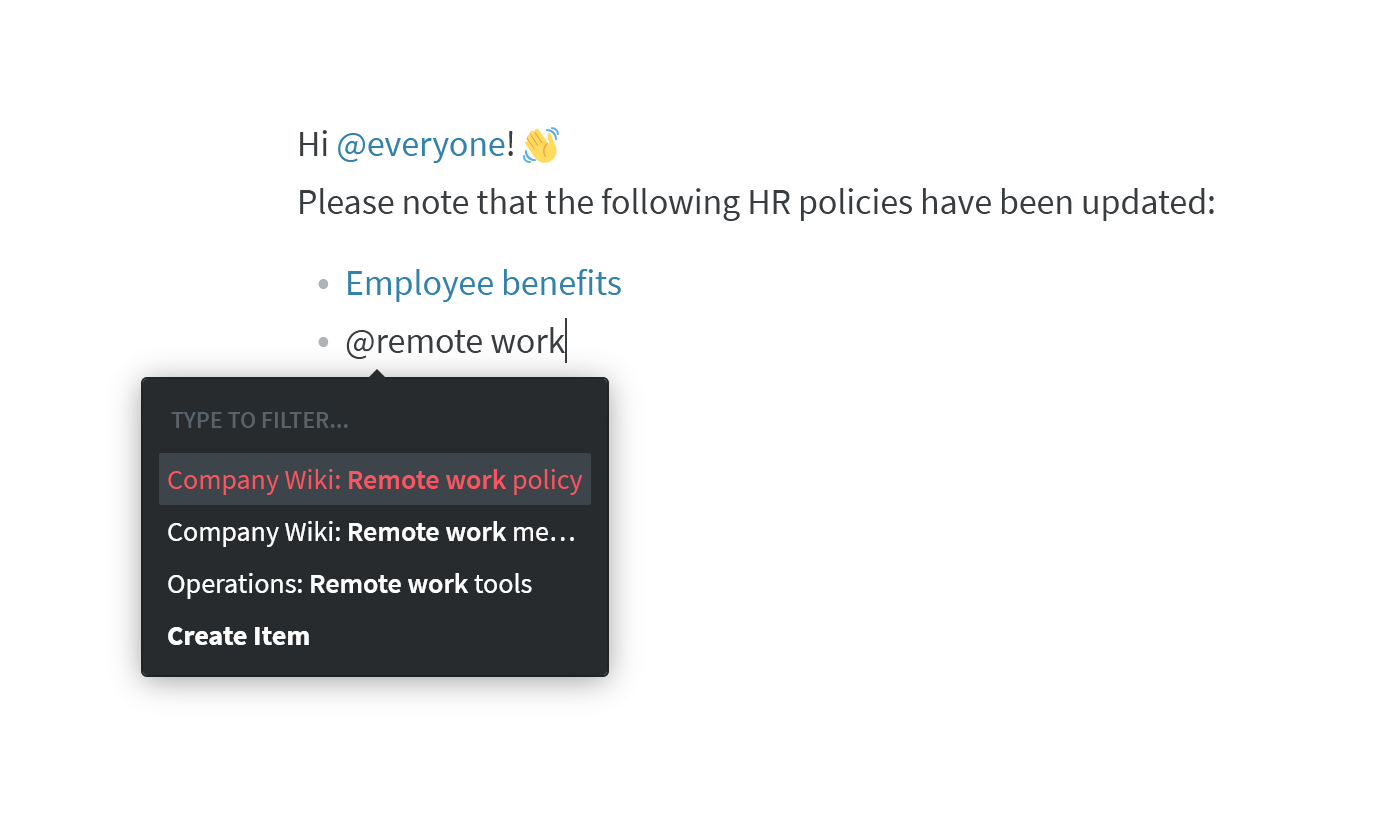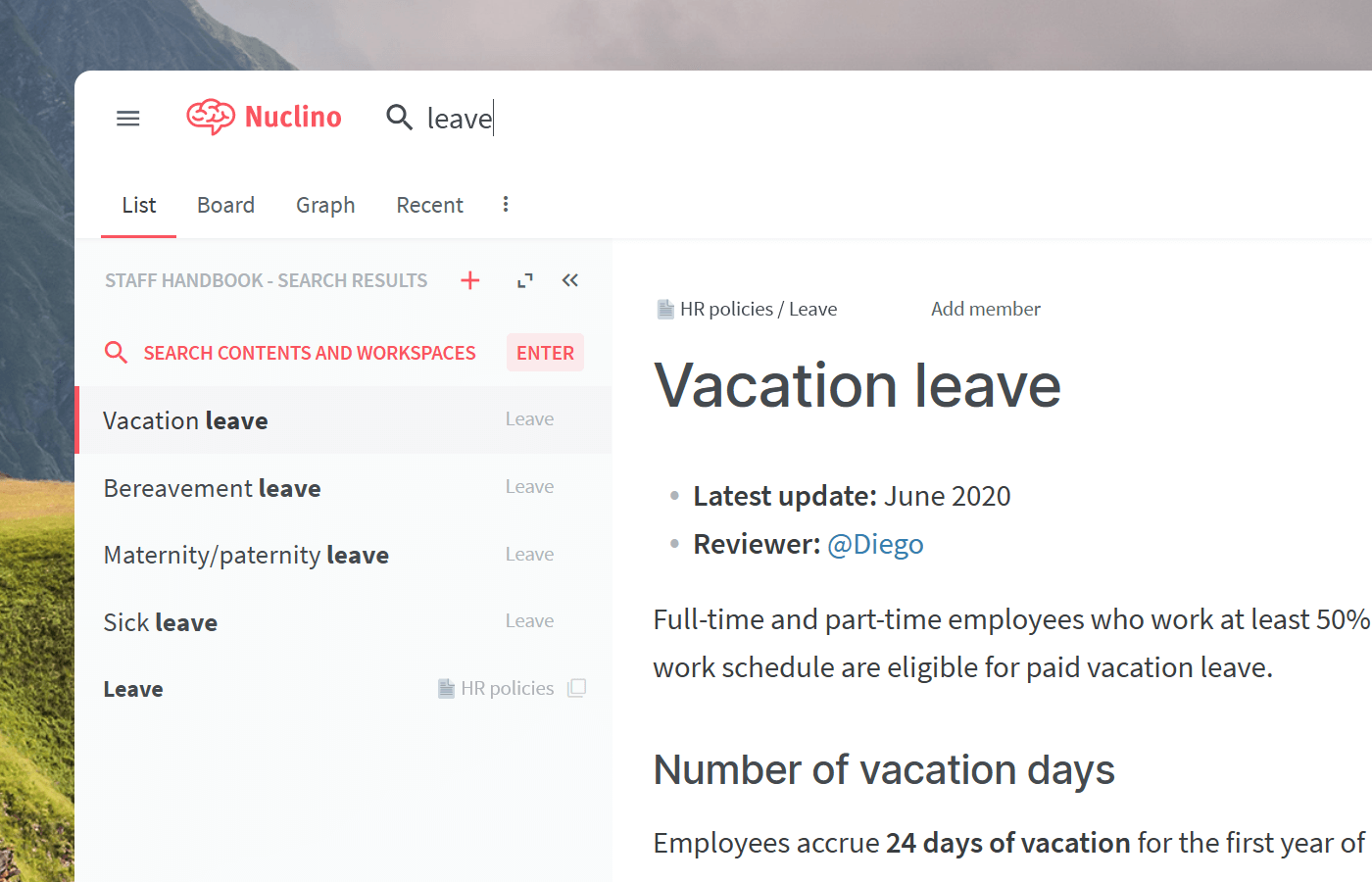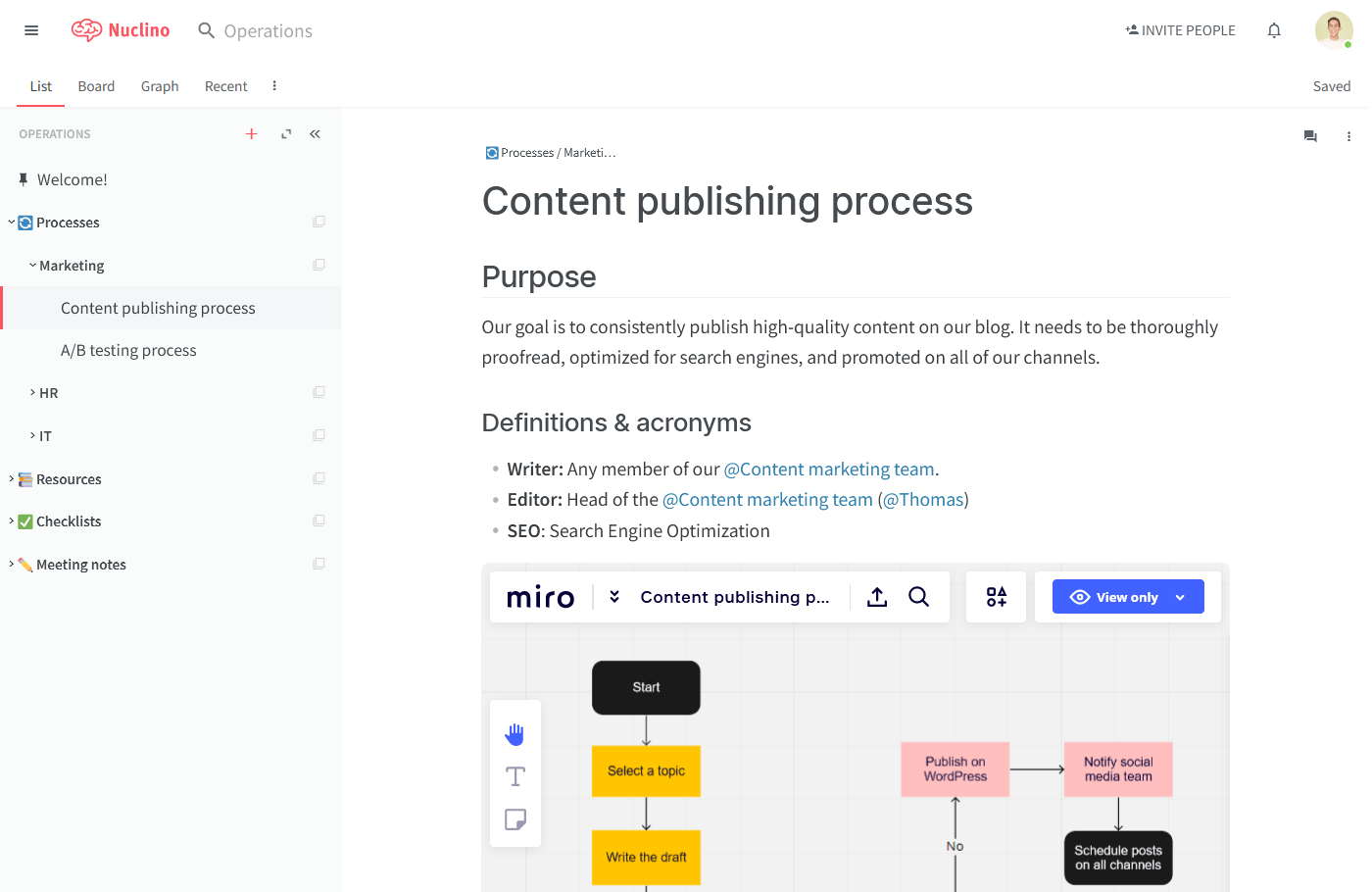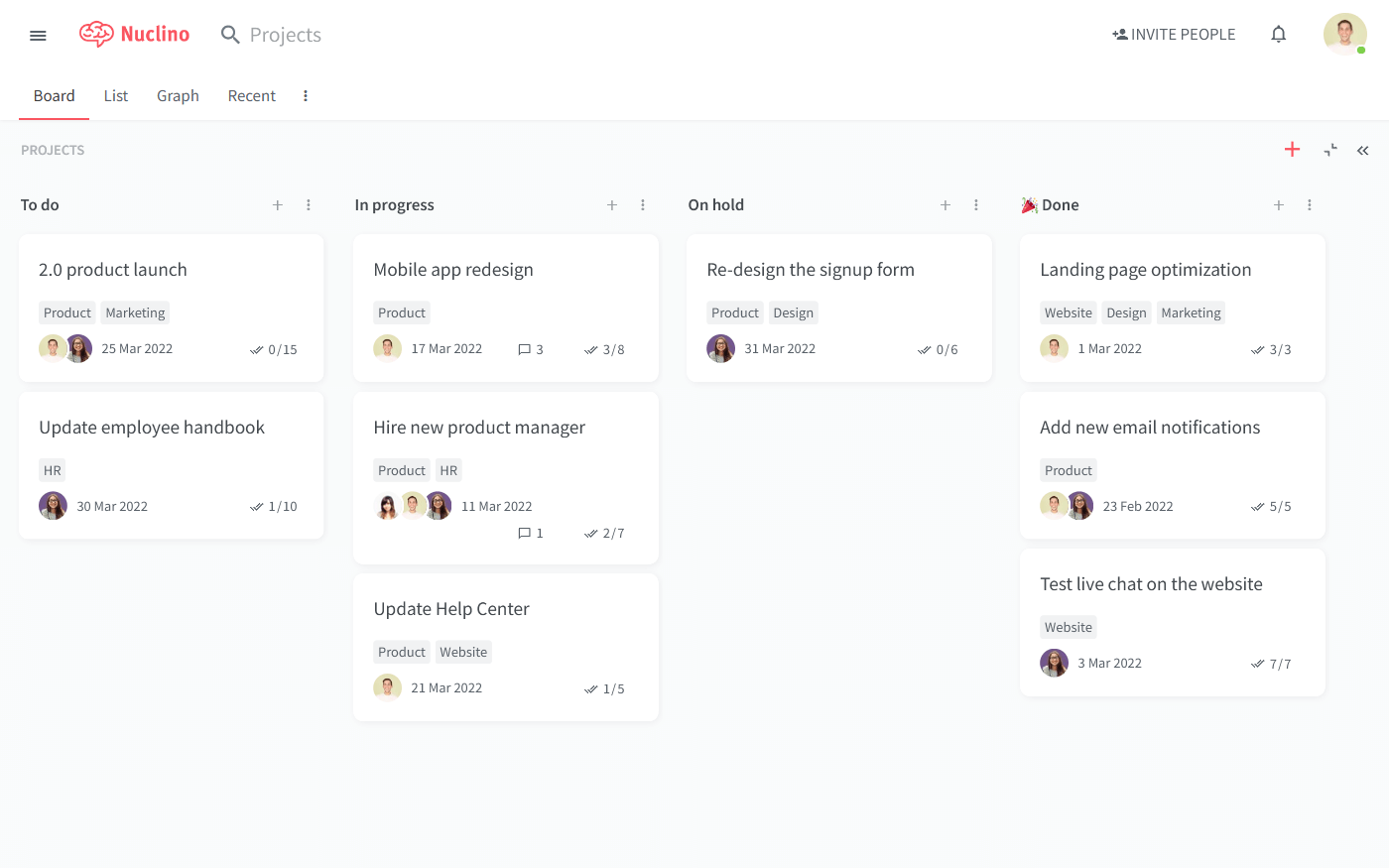Corporate Wiki vs Knowledge Base: What's the Difference?
Learn more about your options and pick the best tool for your team.
Unsure whether to use a wiki or a knowledge base? You've come to the right place.
When it comes to managing internal knowledge and facilitating information sharing within an organization, corporate wikis and knowledge bases are two popular options. While they both serve as repositories for valuable information, understanding the differences between these platforms is crucial in selecting the most suitable solution for your organization's needs.
In this article, we will compare corporate wikis and knowledge bases, highlighting their unique characteristics and benefits to help you make an informed decision.
- What is a corporate wiki?
- What is a knowledge base?
- The differences between a wiki and a knowledge base
- Wiki vs knowledge base: So which is better?

What is a corporate wiki?
A wiki is an online platform that allows users to collaboratively create, edit, and organize content. The term "wiki" comes from the Hawaiian word for "quick".
A corporate wiki, as the name suggests, is a wiki designed for internal use within a company or a team. It serves as a central knowledge repository where employees can access, share, and update information related to their work. It provides a platform for knowledge sharing, collaboration, and documentation within the company.
In a corporate wiki, employees can create and edit pages, similar to how you would edit a document in a word processor. These pages can contain a variety of information such as HR policies and procedures, project documentation, meeting notes, FAQs, best practices, and more. Wiki software typically allows for internal linking between pages, making it easy to navigate and cross-reference information.

A wiki enables employees to contribute their expertise and share insights, ensuring that knowledge is not siloed or lost when employees leave the company. It also helps in fostering collaboration and streamlining information access, as employees can quickly find and update information in a centralized location.
What is a knowledge base?
A knowledge base is a centralized repository of information that contains valuable knowledge, insights, and resources. It's a collection of documents, articles, FAQs, tutorials, and other types of content.
An internal knowledge base is a knowledge base specifically designed for internal use within an organization. It serves as a comprehensive source of information for employees, helping them find answers to their questions, access relevant documents, and learn about company-specific procedures and practices.
Knowledge base software allows you to organize and categorize information in a way that is easy to navigate and search. It may include articles and guides related to company policies, product documentation, troubleshooting instructions, employee onboarding materials, and more. The content is typically created and managed by internal subject matter experts or designated contributors.

The main purpose of a knowledge base is to provide employees with a self-service resource where they can quickly find the information they need to perform their jobs effectively. It reduces the reliance on direct assistance or repetitive inquiries, freeing up time for both employees and support staff. It also ensures consistency in information and helps to preserve institutional knowledge within the organization.
The differences between a wiki and a knowledge base
While both a wiki and a knowledge base serve as repositories of information, there are some key differences between the two:
Structure and organization
A wiki is typically more flexible. The structure of a wiki can be relatively free-form, with pages linked together through hyperlinks.
A knowledge base, on the other hand, is usually more structured and organized. The content is carefully curated and follows a predetermined structure, making it easier to find specific information.
Ownership and maintenance
A wiki encourages user-generated content, meaning that anyone with access can contribute and edit the information. This decentralized approach allows for collaborative contributions and a wider pool of knowledge. However, it may require moderation and oversight to ensure accuracy and consistency.
A knowledge base is usually owned and maintained by a specific team or group within the organization. The responsibility for creating, updating, and curating content lies with designated experts or knowledge managers. This centralized ownership helps ensure that the information stays accurate and up-to-date.
Access and permissions
A wiki often has open access. The collaborative nature of a wiki allows for widespread participation and contribution.
A knowledge base may have restricted access, with permissions granted to specific individuals or groups within the organization. This controlled access ensures that the information is accessible only to authorized readers and editors.
Wiki vs knowledge base: So which is better?
Choosing between a corporate wiki and a knowledge base depends on several factors and the specific needs of your organization. Here are some considerations to help you make an informed decision.
Choose a corporate wiki:
If you want to foster a collaborative environment where employees can actively contribute, edit, and update content. A wiki promotes collective knowledge sharing.
If you anticipate frequent changes, updates, or the need for evolving information. A wiki's flexible structure can accommodate those needs.
If you want to encourage broad participation and engagement from employees across different teams or departments. A wiki's open access can empower employees to contribute their expertise and insights.
On the other hand, you may be better off with a knowledge base:
If you require a more structured and curated approach to information management.
If accuracy, consistency, and quality control are critical. A knowledge base usually provides the necessary oversight to ensure that the information is accurate, up-to-date, and reliable.
If you require restricted access to information, especially when dealing with sensitive or confidential data. A knowledge base allows for more granular permission settings. You can control who has access to specific content, ensuring that it is accessible only to authorized individuals or groups.
It's also worth noting that there are other knowledge sharing tools, such as Nuclino that blur the lines between traditional wikis and knowledge bases and offer a more flexible and modern approach. Nuclino incorporates elements of both wikis and knowledge bases while while adding its own unique twist.

Internal knowledge sharing software example (Nuclino)
And while Nuclino can be used exclusively for sharing knowledge, it's designed as a unified workspace for all your team's knowledge, docs, and projects. In addition to creating an internal company knowledge base or a wiki, teams can use Nuclino to share and collaborate on documents, organize process documentation, onboard new employees, take meeting minutes, and more. It works like a collective brain, allowing you to bring all your team's work together in one place and collaborate without the chaos of files and folders, context switching, or silos.

Ultimately, the decision between a corporate wiki and a knowledge base depends on your organization's culture, information management requirements, collaboration needs, and the level of control and structure desired for your internal knowledge repository.
Ready to get started?
